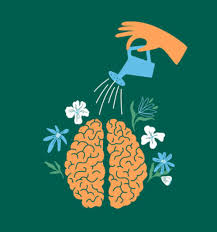1. Understanding Mental Health and Wellness
Mental health is a state of well-being in which an individual realizes their potential, copes effectively with life’s stresses, works productively, and contributes to their community. It encompasses emotional, psychological, and social dimensions that influence thoughts, behaviors, and interactions. Wellness, on the other hand, is a holistic integration of mental, physical, and emotional health aimed at achieving balance. Recognizing the signs of declining mental health, such as persistent sadness, irritability, or difficulty concentrating, is crucial for timely intervention. Promoting mental health starts with awareness and education, empowering individuals to take proactive steps toward better well-being.
2. The Role of Self-Care in Mental Well-Being
Self-care involves intentional actions to care for one’s physical, emotional, and mental health. Practices such as maintaining a consistent sleep schedule, setting boundaries, and engaging in hobbies can significantly impact overall wellness. Journaling and mindfulness exercises are particularly effective for fostering emotional balance and clarity. Dedicate time to activities that bring joy and relaxation, as these can rejuvenate your spirit and enhance mental resilience. Remember, self-care is not a luxury but a necessity for a healthy mind.
3. Stress Management Techniques for a Balanced Life
Stress is an inevitable part of life, but chronic stress can harm mental health. Effective stress management involves both immediate coping mechanisms, like deep breathing and progressive muscle relaxation, and long-term strategies, such as regular physical activity, healthy eating, and time management. Techniques like meditation, yoga, and tai chi help cultivate mindfulness and reduce stress hormones. Incorporating these practices into daily routines can lead to significant improvements in mental health and well-being.
4. Nutrition and Mental Health: Fueling the Mind
The brain requires proper nutrition to function optimally. Diets rich in fruits, vegetables, whole grains, lean proteins, and omega-3 fatty acids have been linked to improved mood and cognitive function. Avoiding excessive sugar, caffeine, and processed foods can prevent mood swings and fatigue. Consider consulting a nutritionist to tailor a diet plan that supports your mental health goals. Staying hydrated and avoiding substance misuse are equally important components of a mentally healthy lifestyle.
5. Physical Activity and Its Impact on Mental Wellness
Regular exercise is a powerful tool for improving mental health. Physical activity releases endorphins, which enhance mood and reduce stress. Activities such as walking, swimming, or dancing not only improve cardiovascular health but also foster a sense of accomplishment and self-confidence. Even moderate exercise, such as 30 minutes a day, can lower the risk of depression and anxiety while improving sleep quality and overall energy levels.
6. Building a Support System for Emotional Resilience
A strong support system is vital for emotional well-being. Connecting with family, friends, or support groups provides a sense of belonging and reduces feelings of isolation. Open communication about challenges can help foster mutual understanding and empathy. Engage in community activities or volunteering, which can enhance your social connections while giving a sense of purpose. Building these relationships forms a safety net during times of stress or crisis.


You must be logged in to post a comment.